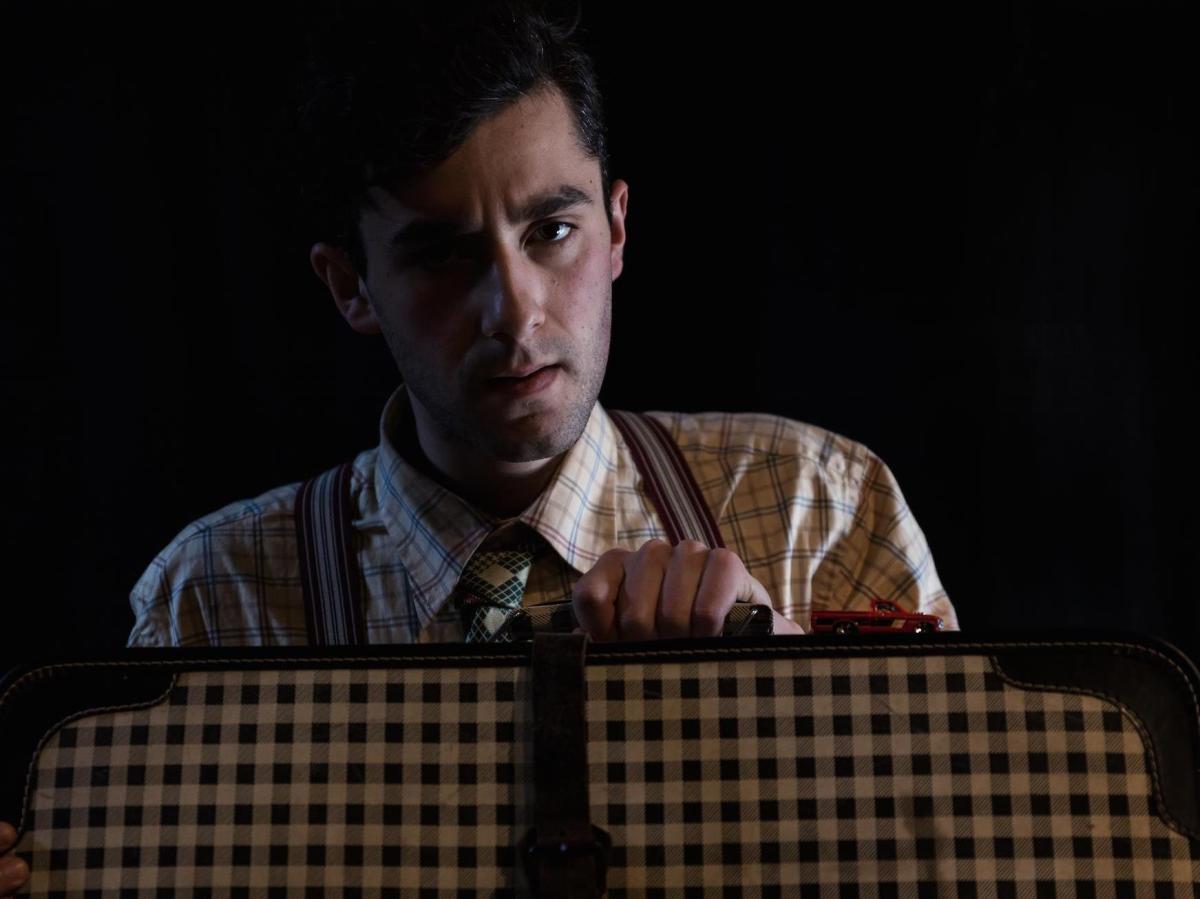Image: Zac Kazepis in Last Year’s Eve. Photo (c) Darren Gill.
Telling migration stories is not easy if you are trying to avoid the narrow characterisations of refugees and migrants. To explore the trauma of others, to tell the stories that do not belong to you and still maintain the sense of authenticity that is central to an effective story is a fine balance. It’s so easy to stray into the simple tropes of victimhood and intolerance that essentialise migrants as disempowered and in need of saving. It’s much harder to show a fully formed person, good and bad, struggling with the real challenge of re-establishing home and healing. Last Year’s Eve navigated this complex balancing act with deft touch and simplicity to tell a migrant story that touches the heart of the issue as well as those of its characters.
Hugo, the stories central character, arrived in Australia as a refugee, alone, when he was eight. His story could be that of someone from Kosovo, as much as it could have been from Iraq or Cambodia. It doesn’t matter. What he brings with him is a profound sense of loneliness and isolation that comes from being attacked by the home you left to be hated and mistrusted and in the home you’re trying to make. Hugo clings on to the small things he has, the faintest of friendships, the meagrest of hopes at making a new life.
But he struggles. A lack of new connection makes it impossible to let go of the harrowing memories of the place he’s still connected to and the little he is willing to trust is thrown back in his face.
Hugo is exceptionally constructed and portrayed by Zac Kazepis who resists the temptation to make Hugo pathetic and needy. Through Hugo’s suffering, Kazepis retains a strength in the character and a determination to find harmony with his notion of home no matter what. Hugo is no philosopher or great intellectual. He’s a simple and ordinary person placed in an unimaginably harsh series of environments and tries to draw on what limited resources he has to make it work.
It is this determination, sometimes inspiring, sometimes frustrating that gives Hugo’s story its emotive drive. Kazepis doesn’t hold back any of Hugo’s confusion or delusion. Last Year’s Eve is deeply affecting because it doesn’t focus on the terror that many see as definitive of the refugee experience but the daily grind that follows in its shadow. And in this day and age it is a long shadow indeed. Last Year’s Eve offers an intriguing insight by focusing on the person and reminding us of the inalienable humanity that is so often missing from the narrative no matter what your point of view.
Rating: 4 ½ stars out of 5
Last Year’s Eve
La Mama Theatre, 15–26 November
Devised and performed by Zac Kazepis
Stage manager Daniel Barca





